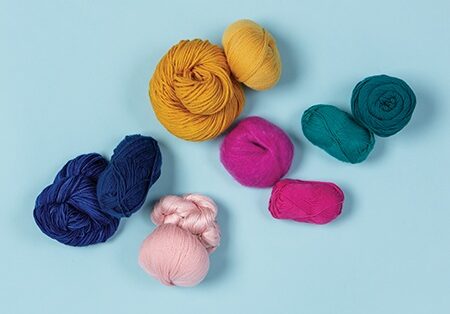How to Choose the Perfect Yarn for Your Crochet Project
Find your perfect yarn and transform your crochet projects with the right fiber, weight, and color.
Are you standing in front of your yarn stash (or scrolling through an online shop) wondering which yarn to pick? Choosing the right yarn can make or break your crochet project — not just in how it looks, but in how much you enjoy making it!
Let’s walk through everything you need to know to confidently select the best yarn for your next crochet creation: from yarn weights and fiber types to color choices and practical shopping tips.
🧶 Step 1: Understand Yarn Weights
The first thing to consider when choosing yarn is its weight — not how heavy it feels, but how thick or thin the strand is. Yarn weight plays a huge role in how your finished piece will look and feel.
The Craft Yarn Council’s Standard Yarn Weight System
To keep things consistent across patterns and brands, the Craft Yarn Council developed a standard numbering system that categorizes yarns from 0 to 7 , where:
💡 Tip: If you’re unsure of a yarn’s weight, use a yarn gauge tool or wrap the yarn around a ruler. Count how many wraps fit into one inch to match it to the chart above.
🪡 Matching Yarn Weight to Hook Size
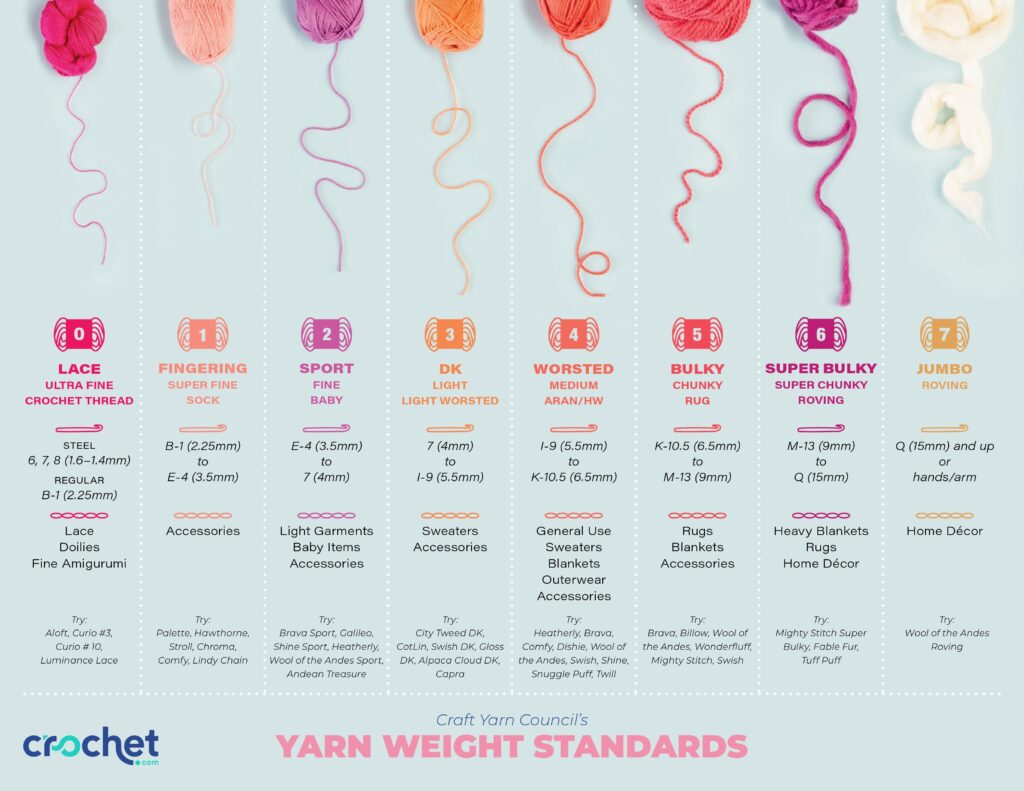
crochet Yarn
Each yarn weight works best with a specific hook size. For example:
- Worsted weight yarn pairs well with a 5.5mm–6.5mm hook
- DK weight prefers a slightly smaller hook, around 4mm–5mm
- Super bulky yarn needs a large hook, often 9mm or bigger
Always check the label on your yarn for suggested hook sizes — and remember, changing hook size can help adjust your tension or create different fabric effects!
🌿 Step 2: Know Your Fiber Content
Yarn fibers fall into three main categories: natural , synthetic , and blends . Each has its own benefits and quirks.
Natural Fibers
Natural fibers come from animals or plants and are prized for their breathability, softness, and drape.
- Wool : Warm, elastic, perfect for winter wear
- Cotton : Cool, breathable, great for summer items
- Alpaca : Soft and warm, with a slight halo
- Silk : Luxurious sheen, ideal for shawls and lace
- Linen : Crisp texture, gets softer with washing
Some natural fibers like Oeko-Tex certified or Responsible Wool Standard (RWS) yarns are also eco-friendly and ethically sourced.
Synthetic Fibers
Synthetics like acrylic , nylon , and polyester are affordable, durable, and easy to care for. They’re great for beginners or anyone looking for machine-washable options.
Yarn Blends
Blends combine the best qualities of different fibers. For example:
- Wool + nylon = durability for socks
- Bamboo + wool = softness + warmth
- Merino + silk = luxury drape and sheen
🎨 Step 3: Don’t Forget About Color!
Choosing the right color is part of the fun — and it should reflect your personal style or the recipient’s preferences.
Here are a few quick tips:
- Choose solids for clean lines and sharp stitch definition
- Use variegated yarns for visual interest without extra effort
- Stick to a cohesive palette if using multiple colors
- Always check the dye lot to avoid color variations in larger projects
🛍️ Step 4: Practical Tips for Buying Yarn
Before you click “buy” or head to the store, keep these smart shopping habits in mind:
✅ Check the Pattern Requirements
Most patterns specify:
- Yarn weight
- Yardage needed
- Suggested hook size
✅ Calculate Yardage
If your pattern says you need 500 yards and each skein gives you 100 yards, you’ll need 5 skeins — plus one extra just in case!
✅ Read Care Instructions
Washing matters! Especially if you’re making something for a child or someone with sensitive skin. Look for:
- Machine-washable labels
- Hypoallergenic fibers
- Gentle care instructions
✅ Buy Extra
It’s better to have a little too much yarn than run out halfway through a project. Trust me — matching the exact dye lot later can be tricky!
🧶 Final Thoughts: There’s No Wrong Yarn — Just Different Results
There’s no such thing as a “bad” yarn — only yarns that work better for certain projects than others. As you experiment with different weights, fibers, and textures, you’ll start to discover what you love most.
So go ahead — dive into your stash, try something new, and enjoy every stitch of your journey.
📦 Ready to Start Crocheting?
If you’d like, I can send you a free printable yarn guide with this info, plus a handy yarn weight conversion chart and yarn substitution tips. Just say the word!
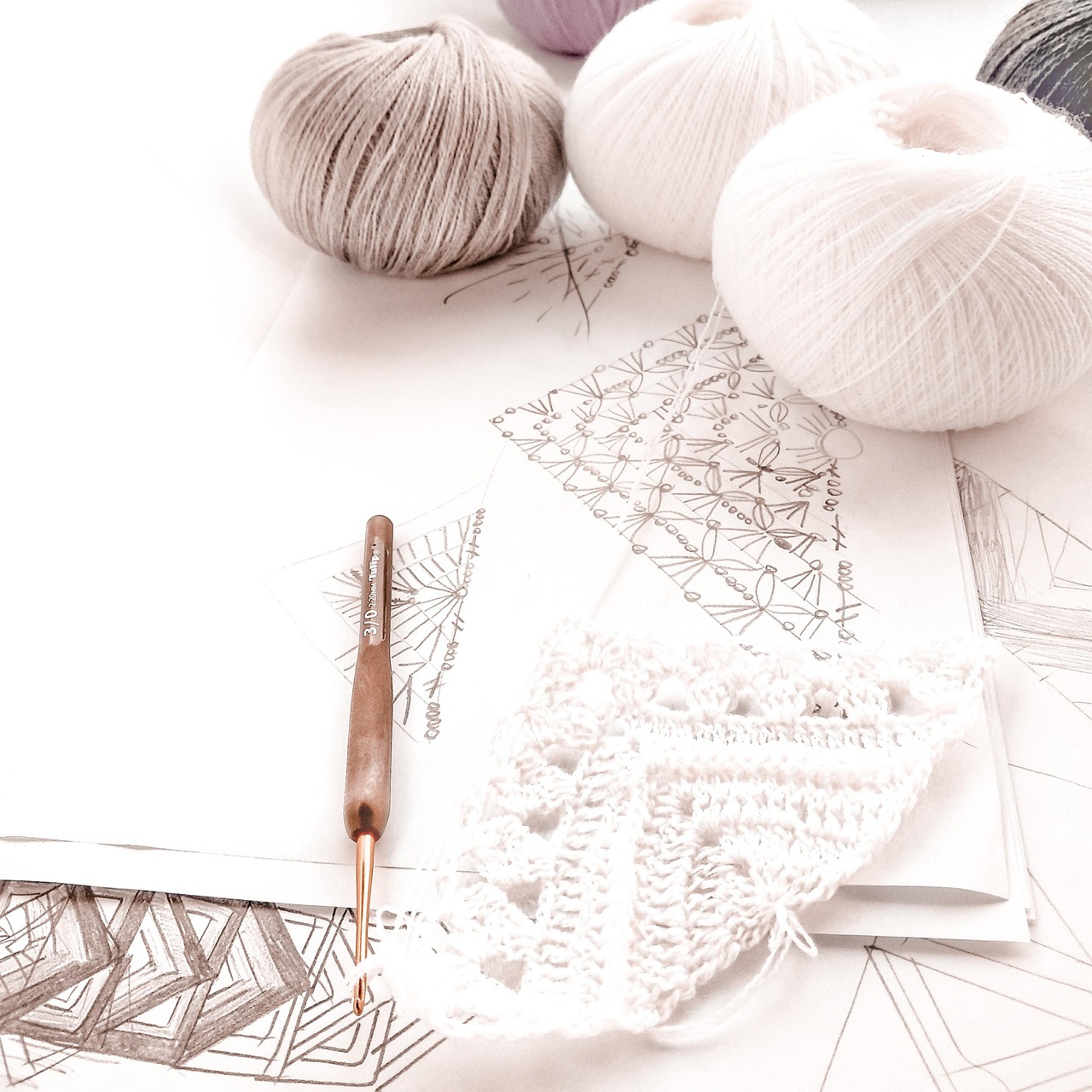
Crochet Yarn – Soft, Smooth, or Sparkly?
When it comes to crochet, choosing the right yarn isn’t just about color or pattern — it’s also about how it feels . After all, you’ll be working with it for hours, and the person who ends up wearing or using your finished project will notice the texture too.
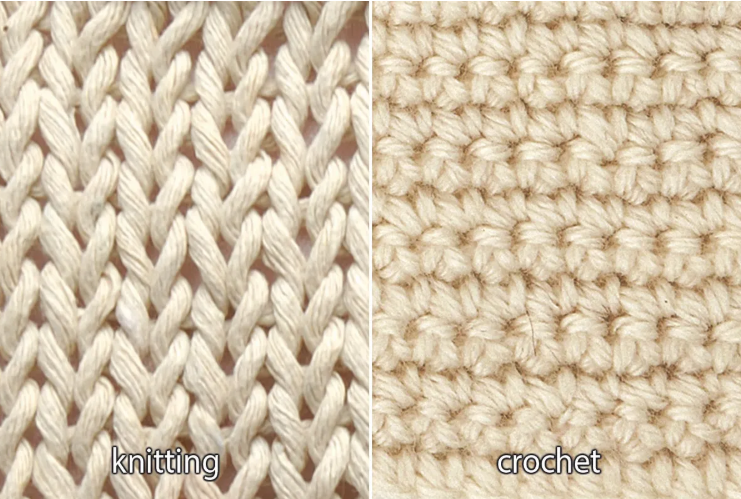
The Difference Between Knitting Yarn and Crochet Yarn
When you’re just starting out in the world of fiber crafts, it’s easy to wonder: is there really a difference between knitting yarn and crochet yarn ? The short answer is no — not really.
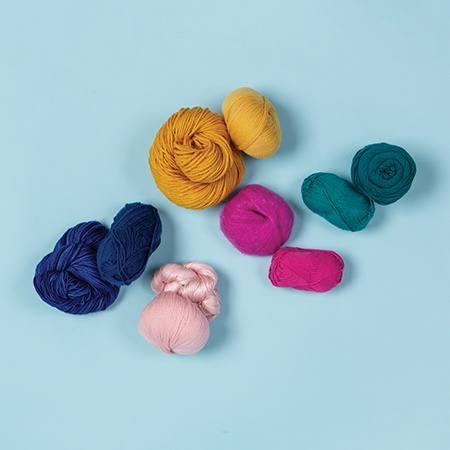
How to Choose the Perfect Yarn for Your Crochet Project
Are you standing in front of your yarn stash (or scrolling through an online shop) wondering which yarn to pick? Choosing the right yarn can make or break your crochet project — not just in how it looks, but in how much you enjoy making it! Let’s walk through everything you need to know to […]
